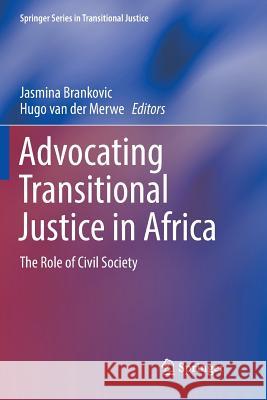Advocating Transitional Justice in Africa: The Role of Civil Society » książka
topmenu
Advocating Transitional Justice in Africa: The Role of Civil Society
ISBN-13: 9783319889344 / Angielski / Miękka / 2019 / 231 str.
Kategorie BISAC:
Wydawca:
Springer
Seria wydawnicza:
Język:
Angielski
ISBN-13:
9783319889344
Rok wydania:
2019
Wydanie:
Softcover Repri
Ilość stron:
231
Waga:
0.36 kg
Wymiary:
23.39 x 15.6 x 1.4
Oprawa:
Miękka
Wolumenów:
01
Dodatkowe informacje:
Wydanie ilustrowane











